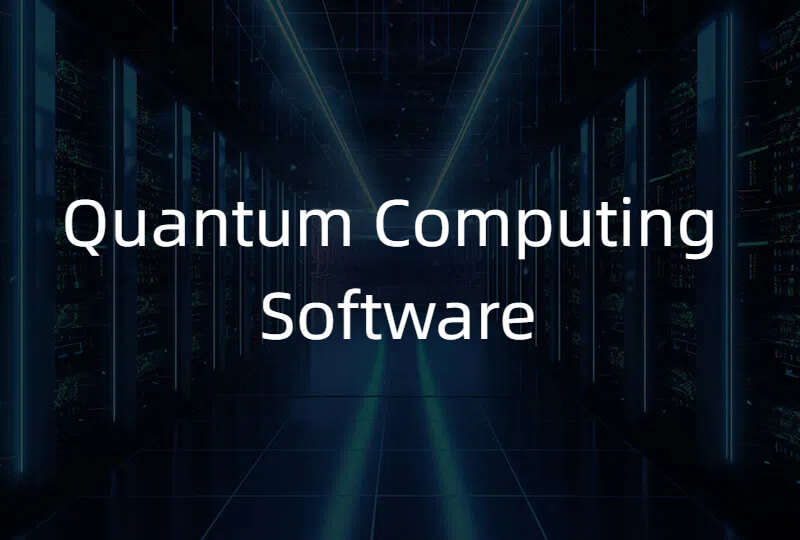Top Quantum Computing Software Tools & 2025 Trends
2025.06.09 · Blog quantum computing software
Quantum Computing Software: The Brain Behind the Qubits
Quantum computing software is no longer just a research tool—it's the central nervous system of the quantum ecosystem. As quantum hardware matures, the software layer becomes essential for programming, simulating, optimizing, and deploying real-world quantum applications across industries.
In this article, we delve beyond the basics to explore the platforms, SDKs, cloud services, and future trends that are shaping the quantum software landscape.

From Quantum Computing Hardware to Quantum Computing Software: Why the Focus Has Shifted
While much media attention has been placed on quantum hardware—such as superconducting qubits or ion-trap qubits—the real bottleneck is software. Why?
-
Hardware-specific programming is non-scalable
-
Error rates demand intelligent compiler and correction tools
-
Diverse platforms need hardware-agnostic abstractions
This shift has led to a boom in quantum software frameworks, often open-source, and supported by major quantum cloud computing providers and universities.
The Quantum SDK Landscape: Key Players You Should Know
Several platforms have emerged to help developers interact with quantum hardware or simulate quantum behavior. Here are some top tools:
|
Platform |
Language |
Key Feature |
|
Python |
Modular with simulators and quantum circuits |
|
|
Cirq (Google) |
Python |
Gate-level control for near-term hardware |
|
SpinQit (SpinQ) |
Python |
Rich quantum algorithm libraries Tailored for educators and researchers, multilingual UI, global access |
|
PennyLane (Xanadu) |
Python |
Focus on hybrid quantum/classical ML |
|
Braket SDK (Amazon) |
Python |
Multi-device interface via AWS |
|
Ocean (D-Wave) |
Python |
Specialized for quantum annealing |
These SDKs allow for quantum circuit design, simulation, and often hardware execution on real quantum devices or cloud emulators.
Quantum Cloud Platforms: Making Quantum Accessible
Quantum computing is expensive and complex—but cloud platforms now bring qubits to your browser. These services are game-changers:
-
IBM Quantum Experience: Free and commercial cloud access to real devices
-
Amazon Braket: Unified access to IonQ, Rigetti, and OQC hardware
-
Microsoft Azure Quantum: Combines Q# with access to hardware and classical resources
-
SpinQ Cloud: Educational & hybrid quantum platforms with integrated software tools
-
Google Quantum AI (Cirq + hardware): For advanced quantum research and experiment scheduling (only via research partnerships)
Cloud-based quantum services are key to democratizing access, allowing students, enterprises, and researchers to experiment without owning quantum machines.
Hybrid Computing: Quantum-Classical Integration
Quantum software isn’t meant to replace classical software. Instead, hybrid algorithms use quantum computers for their strengths (e.g., optimization, simulation), while classical hardware handles control, data processing, and pre/post-processing.
Examples:
-
Variational Quantum Eigensolver (VQE)
-
Quantum Approximate Optimization Algorithm (QAOA)
-
Quantum Support Vector Machine (QSVM)
This co-processing architecture is where most practical near-term quantum software development is focused.
No-Code and Low-Code Interfaces: Quantum Computing for Everyone
A growing set of tools and platforms are making quantum computing more accessible through visual interfaces and interactive learning:
-
IBM Quantum Composer – drag-and-drop quantum circuit builder used worldwide in quantum education
-
QURECA – delivers quantum education via interactive courses, many of which integrate visual simulation tools
-
Bloqade (Harvard) – while not strictly no-code, it offers structured simulation of Rydberg systems for advanced learners
These platforms help bridge the talent gap, making it easier for educators, students, and professionals to explore quantum computing without deep programming expertise.
Software in Quantum Error Correction and Compilation
Another critical area is software-driven quantum error correction (QEC). Intelligent compilers and runtime systems can:
-
Optimize circuits to reduce error
-
Choose the best hardware configuration
-
Translate abstract algorithms into physical-level instructions
Companies like Classiq, Quantinuum, and Zapata Computing are building such intelligent quantum software layers.
The Future: AI Meets Quantum Software
One exciting trend is the intersection of AI and quantum software:
-
AI models help optimize quantum circuits
-
Quantum software can simulate molecular systems for AI-based drug discovery
-
AutoML + quantum chemistry is emerging for material science
In the long term, AI-powered quantum software will make quantum programming adaptive, context-aware, and more efficient.
Featured Content






